
Fashion at its core has always been about identity, but throughout its history has also proved a creative outlet in times of political dissent. Now, for a group of designers in Britain, those two realities have collided. Ryan Cahill meets Raehemur Rahman, Ashish Gupta, Priya Ahluwalia and Nicholas Daley, four London-based designers who are reclaiming their identity and creating collections that are the perfect antidote to Brexit Britain.
Wherever you are in the world, it’s almost inevitable that you’ve heard the word “Brexit”. For those of us living in the UK, it’s omnipresent; appearing on the front page of every newspaper and being the main bulletin across daily broadcast media. But while it continues to be a point of negativity for the vast majority of us, it’s undeniably giving a new lease of life to creative industries as a major source of inspiration. The Brexit bubble is encouraging creatives to source international cultural references and bring them back to Britain.
At the most recent menswear presentations in London, a small pocket of designers were looking outwards and utilising traditional (and sometimes archaic) design techniques linked to their family heritage in order to bring something new to their collections. On a broader scale, designers with a non-British heritage are more commonly looking at the wider world as a source of inspiration, often heading overseas to seek out new insights to apply to their work.
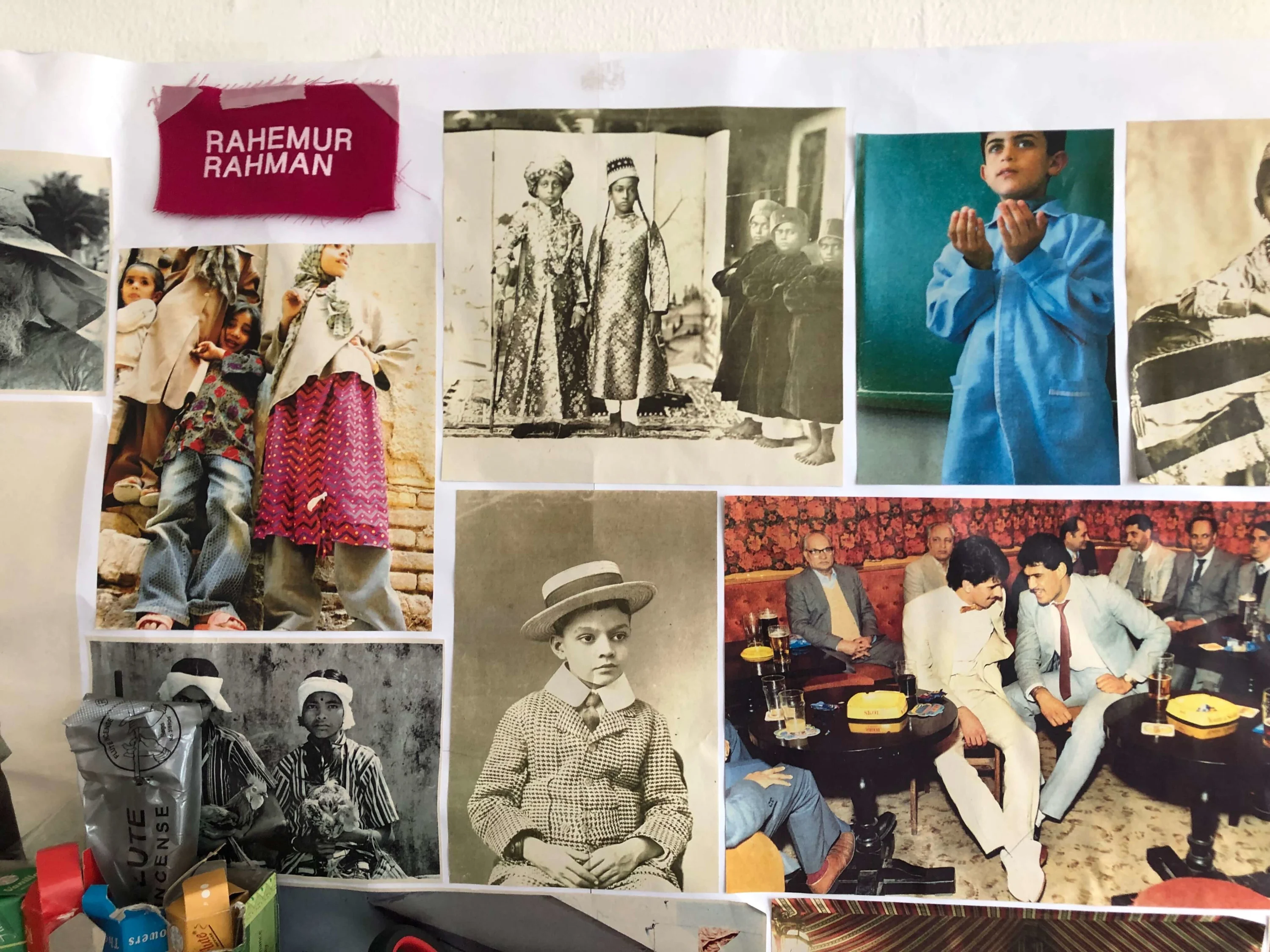
There’s perhaps no one that does this better than emerging designer Raehemur Rahman. Raised in East London’s Isle of Dogs in a South-Asian family with nine siblings, the 28-year-old had a complex upbringing. Making his way through various schools, he was, in his own words “at risk of being an East London delinquent”. Thankfully, his father enrolled him at an Arts Centre Youth Club where he was given the freedom to explore with different creative mediums, and it was here he first discovered his interest in textiles and design. After a visit from University of the Arts London, Raehemur was introduced to renowned fashion college Central Saint Martins. “I was really into it, so I did my BTEC in Art and Design and that led me into menswear,” he says.
He first recognised a need to explore his family history while working on his graduate collection. “It was at the time when Bangladesh had a massive factory collapse. I was the only Bangledeshi person in St Martins and it completely changed everything,” he explains. “So for my graduate collection, I went back to Bangladesh and created this weave which was a silk jacquard which was beautiful and really light.”
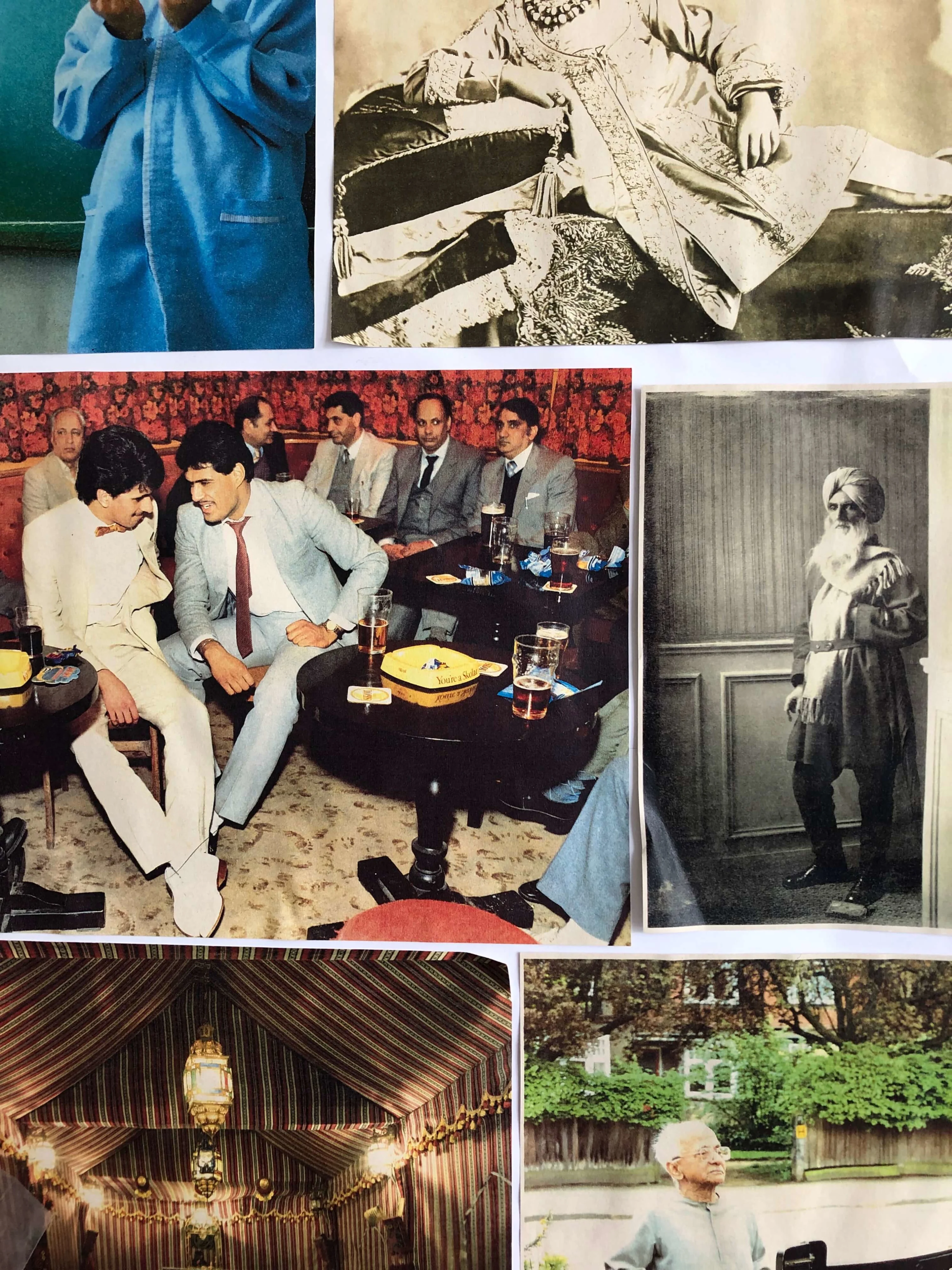

After graduating and working at various fashion houses in Paris, he launched his eponymous menswear brand, which seeks to redefine what it means for fashion to be “Made in Bangladesh” by using design to reinterpret and retell stories of South Asian identity. He can often be found trawling through the archives of the V&A looking for South Asian fabrics and techniques to compliment his design aesthetic. While researching for his SS20 collection, he stumbled across an archaic seven colour block print. “It was an amazing textile. I went to Bangladesh and I was looking to work with artisans. I went to the same people who did block print there. The more I research and the more textiles that I see, the more I hear that there are no longer artisans who can do this skill, because back then a grandfather would learn the textile and train for 50 years and then his kid would work with him and they would learn, but once they were killed there was no one to teach the skill. It ended with them.”
He’s hoping that over the next 10 years, his brand will encourage traditional Bangladeshi techniques and crafts to be brought back to the forefront. “For me the saddest part is that it wasn’t just one textile , it was the embroidery, it was the weaving, it was everything. I think it is within our role as designers to help bring these back because it was designers who made them in the first place. When I found out about my own history, I felt like it was my duty to do that.”
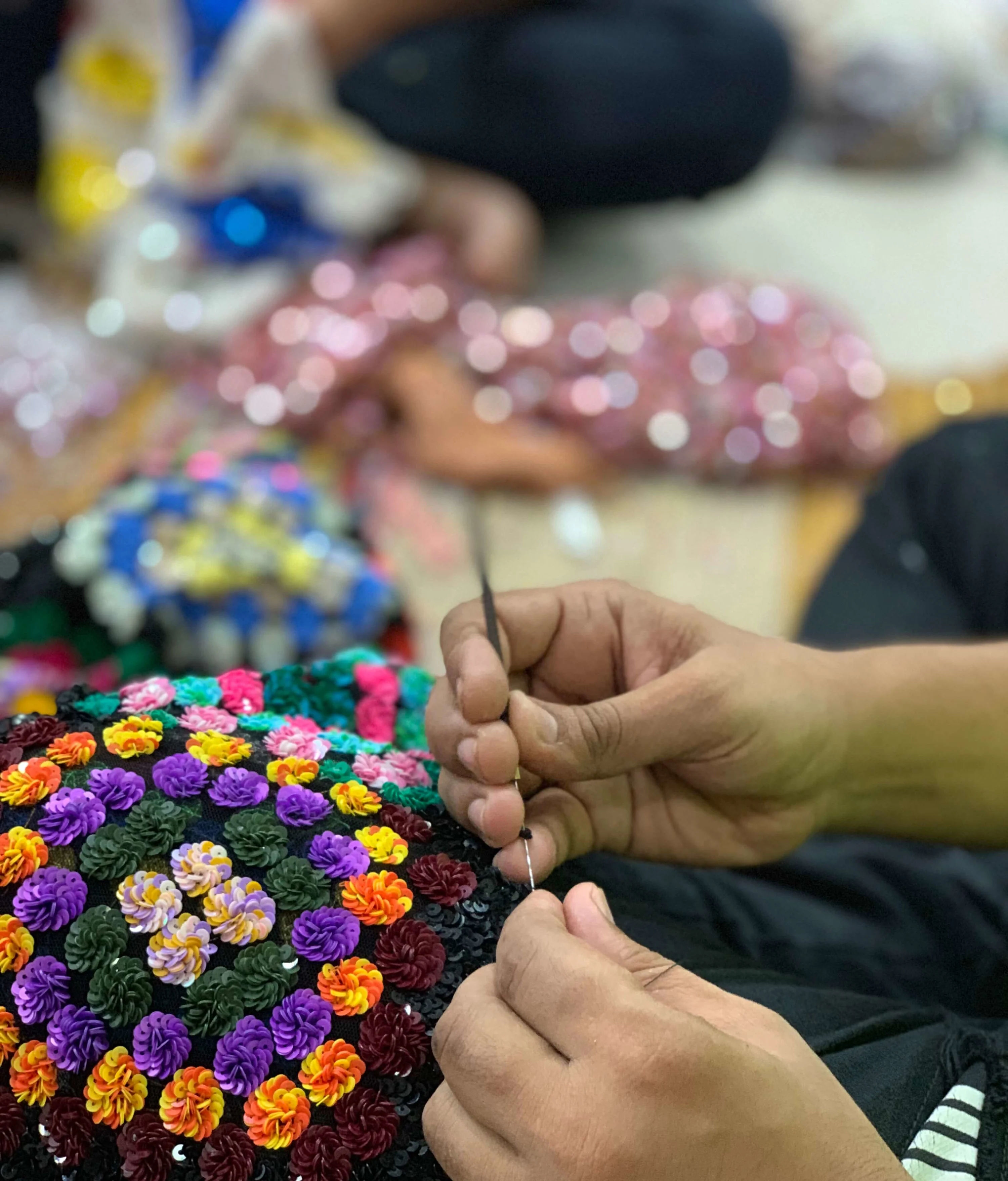
In a similar vein, Indian designer Ashish Gupta is keen to keep age-old craft techniques alive in his native India. Born and raised in Delhi, creativity was a part of his life from an early age. After completing a degree in Fine Art in India, he decided to travel to London to try his hand at fashion design after securing a place at Saint Martins.
He launched his own label in 2004 and quickly found fans in Madonna and M.I.A. Becoming synonymous with sequins and intricate embellishments, he cites India as being one of the best countries in the world for this kind of craft.

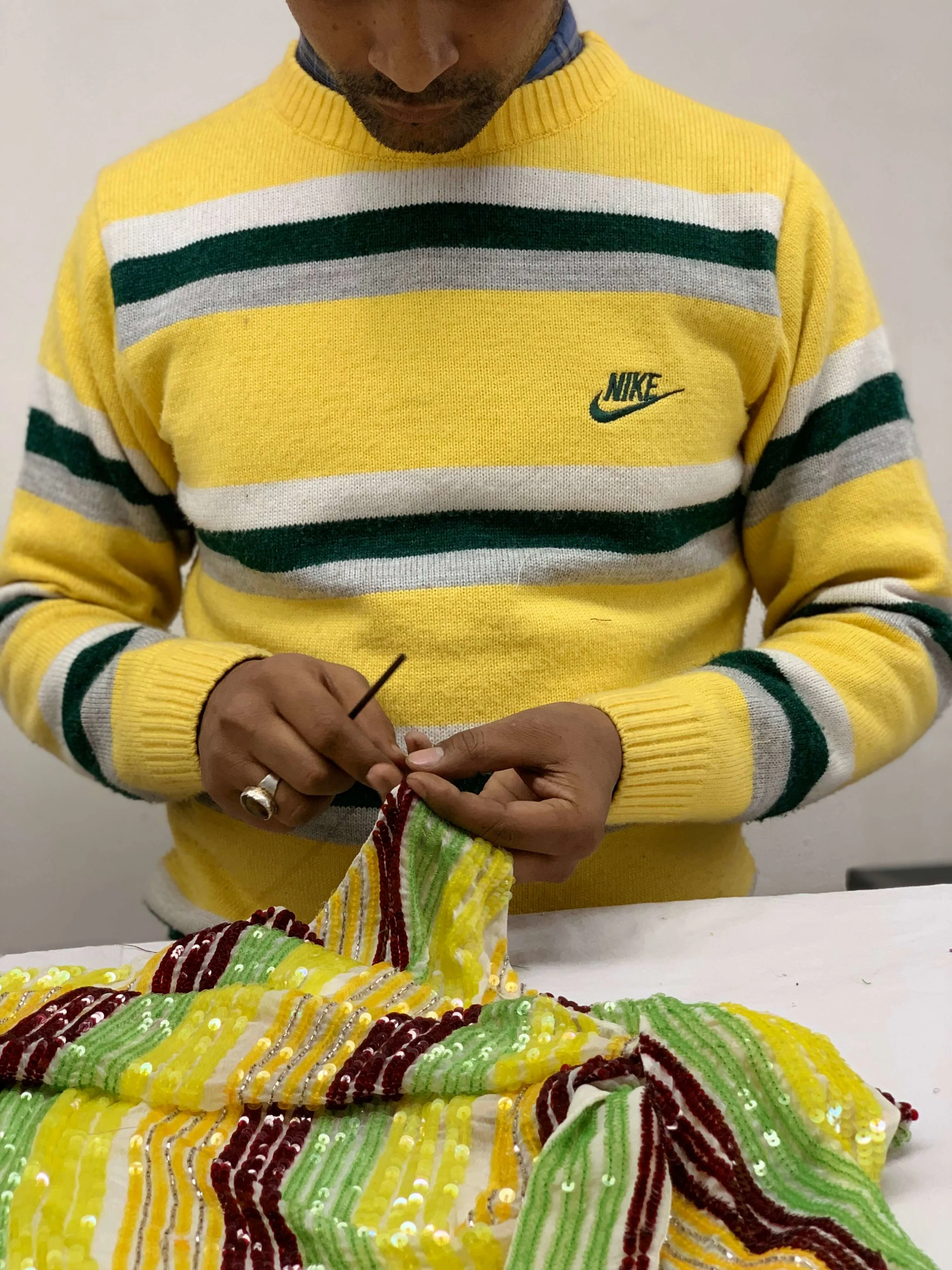
“When I started I couldn’t find anyone to manufacture because I was doing such small quantities, so I actually went back and decided to set up my own studio,” he tells me. “I think I realised that it was a lovely thing to do because I was hiring people and helping to keep all these skills alive. There’s so much industrialisation now and it’s kind of a shame because there are so many techniques that have been handed down through generations and there’s so much hand craft which is just being lost, so I thought it would be good to hire really skilled artisans and support the industry and their work.”
Despite sequins not being the easiest material to work with, Ashish and his Indian studio consistently create pieces that push the boundaries of possibility. For his AW19 collection, he showcased a series of designs where sequins were used to depict a crochet pattern, something that could only have been achieved by using artisans with refined embroidery talents in his native India.

For rising design star Priya Ahluwalia, sustainability is at the fore. Born and raised in South West London of Indian and Nigerian descent, Ahluwalia is inspired by the ritual of passing down clothing through generations, something which is commonplace in Nigeria, where much of her extended family still live.
The concept for her self-titled label came in 2017 when she was visiting her family in Lagos. She noticed that a lot of people were wearing discarded British clothing. A later visit to Panipat in India (the global garment recycling capital of the world) introduced her to piles of disused clothing ready to be recycled, and she realised that she could create an entire collection from unwanted garments whilst paying an ode to the ritual of passing down clothing through generations.

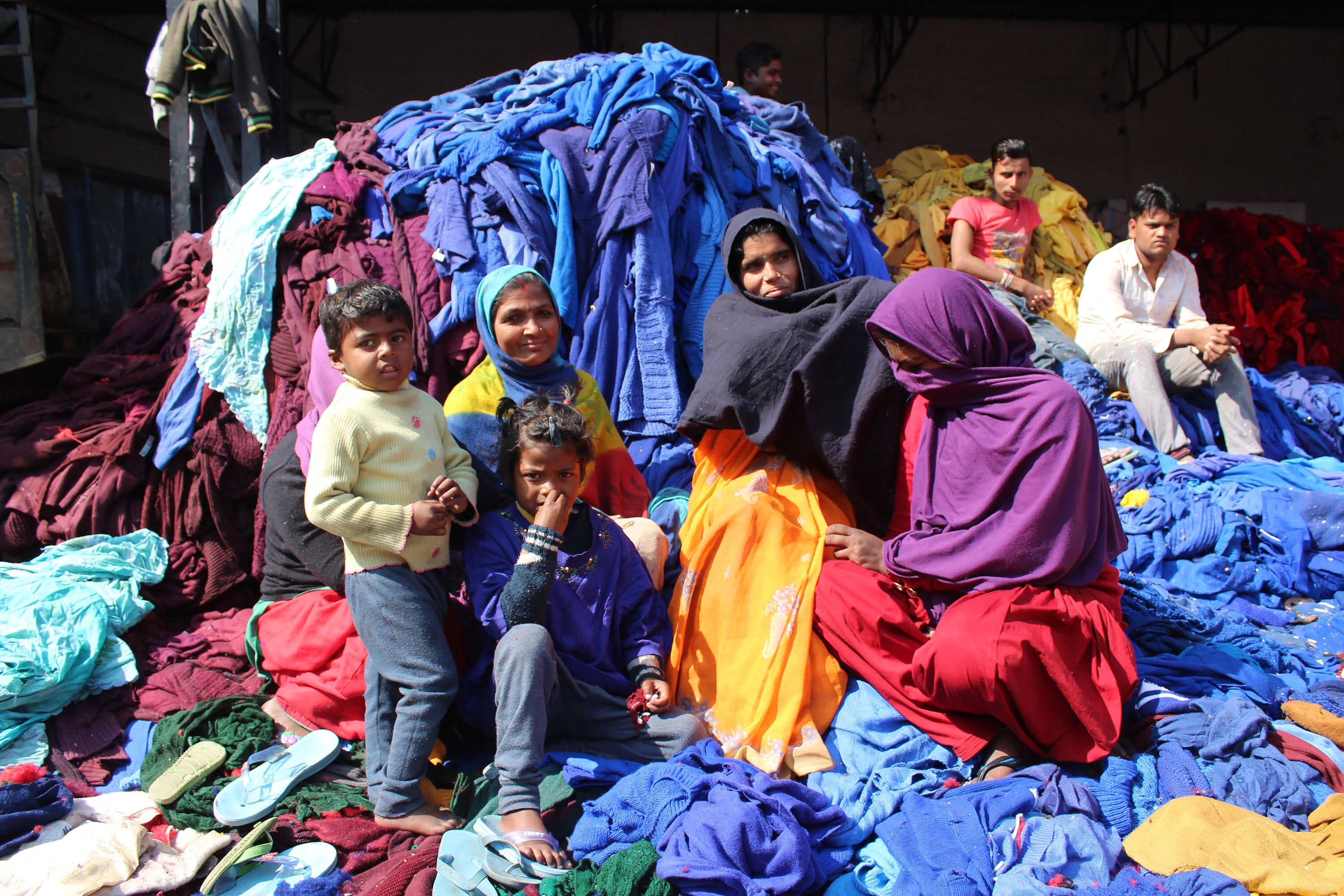


“When I travel to India and Nigeria, I often spend time with my extended family which always inspires me because I'm constantly rooting through their old photos or looking through their wardrobes. I am a really sentimental person so I get transfixed by personal artefacts,” she says of her process. “In a broader sense, being in India and Nigeria, allows me to see colours, hear sounds, and smell scents that I don't experience in London. Everywhere you look there is someone hustling and the energy is so inspiring. I also get to look into different recycling and textile industries. I am constantly inspired by beading and have always been trying to think of new and fresh ways to take the techniques and bring them into my work.”
Her work manifests into a collision of patterns, prints and materials, brought together to create a one of a kind garment which has been created using vintage fabrics. It’s a unique blend but one that wouldn’t have been possible if she didn’t look outside the parameters of the UK. “Being mixed heritage but living in the UK, my experience of living in London is different to other people. I look at my life as a British person just as much as I look into my ethnic backgrounds, and then it creates a melting pot of ideas and references.”
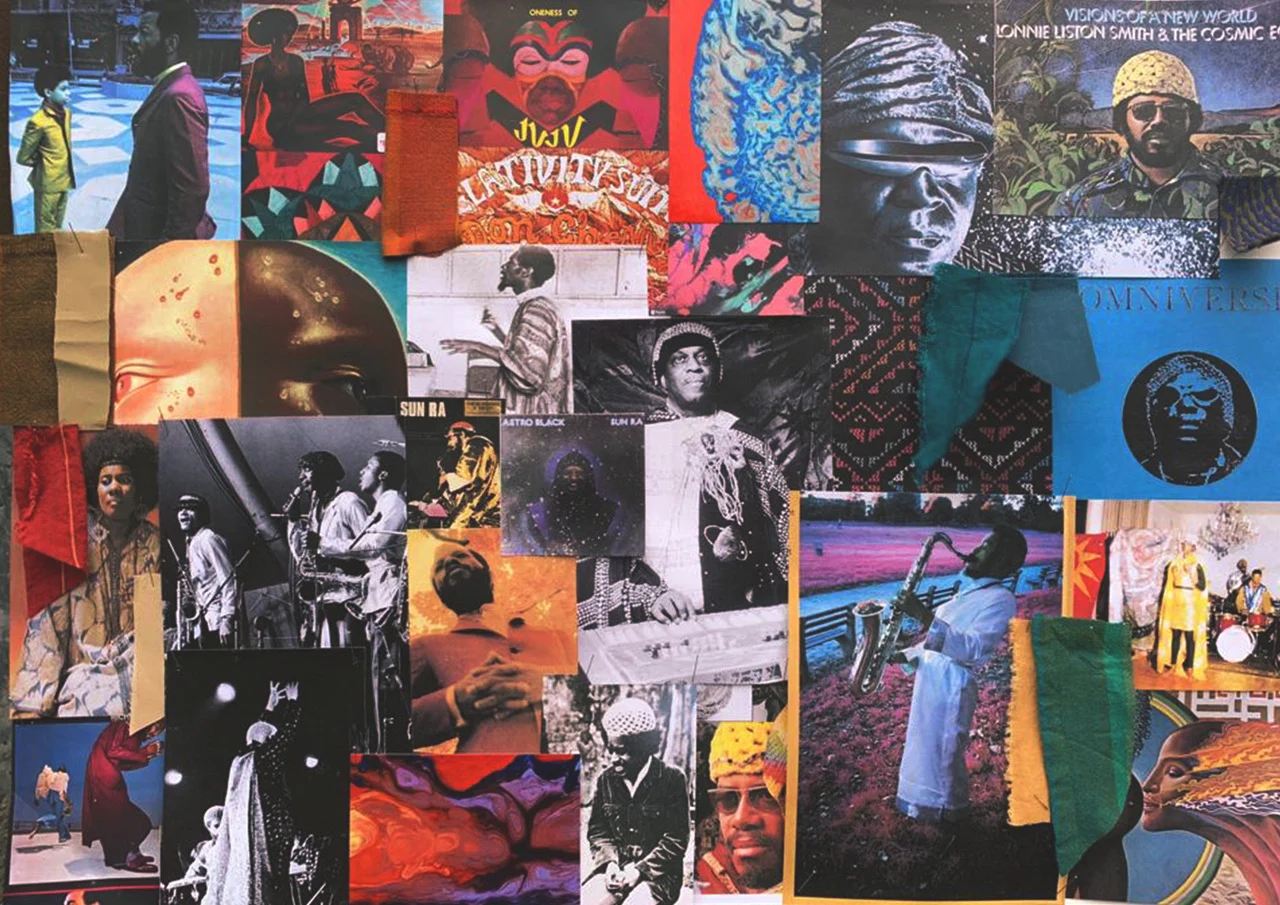
Family history has always been the root and stem of Nicholas Daley’s self-titled brand too. The designer launched his label in 2015 and has since received sponsorship from the British Fashion Council via their NEWGEN programme. His work often pays homage to music and incorporates live performances into his showcases, something which harks back to his parents. His Scottish mother and Jamaican father were responsible for opening one of the first reggae clubs in Scotland during the 70s. “I think it is important for designers to always look at a diverse range of inspiration and cultures from the UK and also abroad. As creatives we need to always keep our minds open - we can never stop learning.”
For his SS20 collection, he took inspiration from the esteemed African-American jazz group, Sun Ra Arkestra and their seminal LP, ‘Astro Black’, seen through knitted caps, colourful tie-dyes, as well as statement sunglasses.
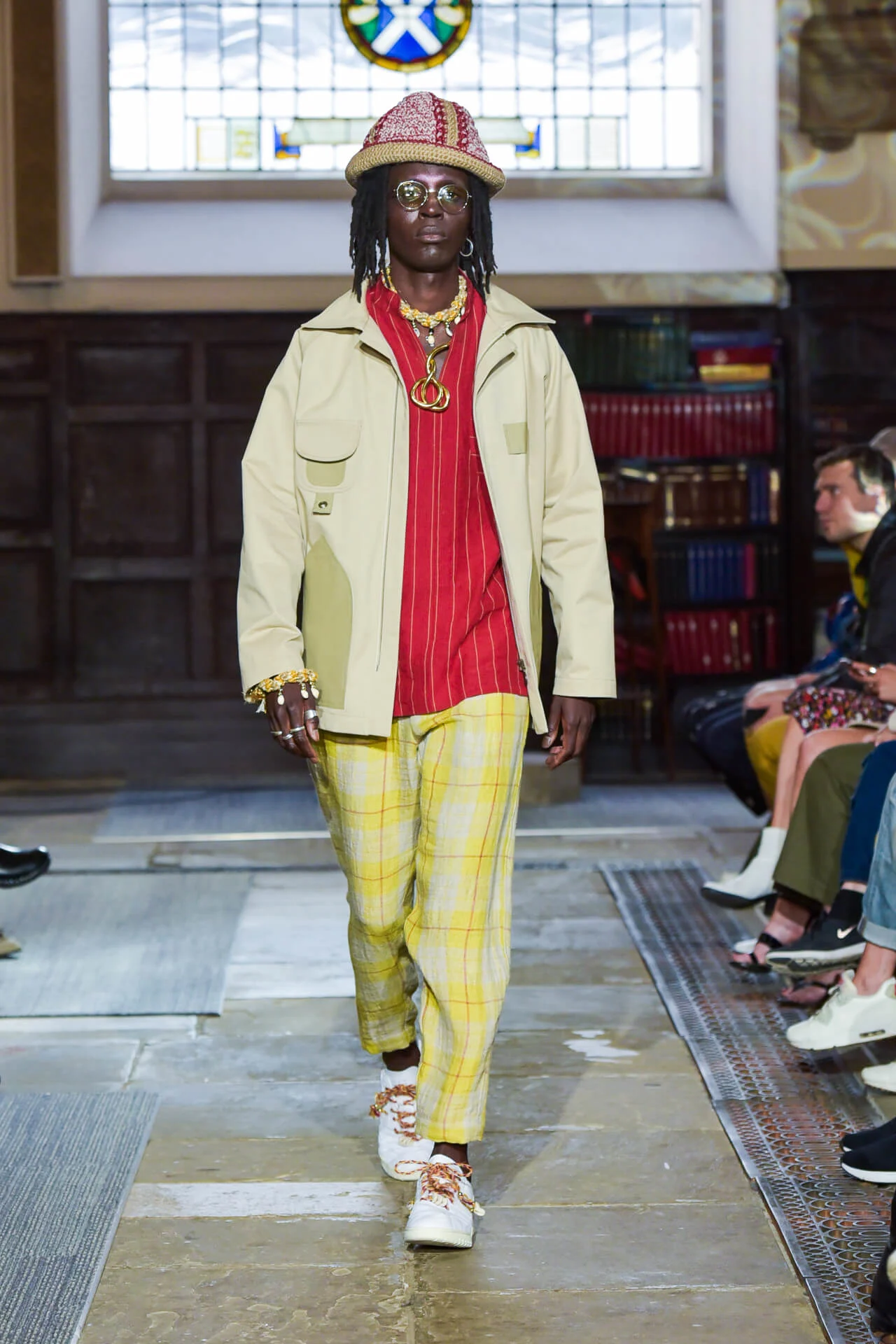
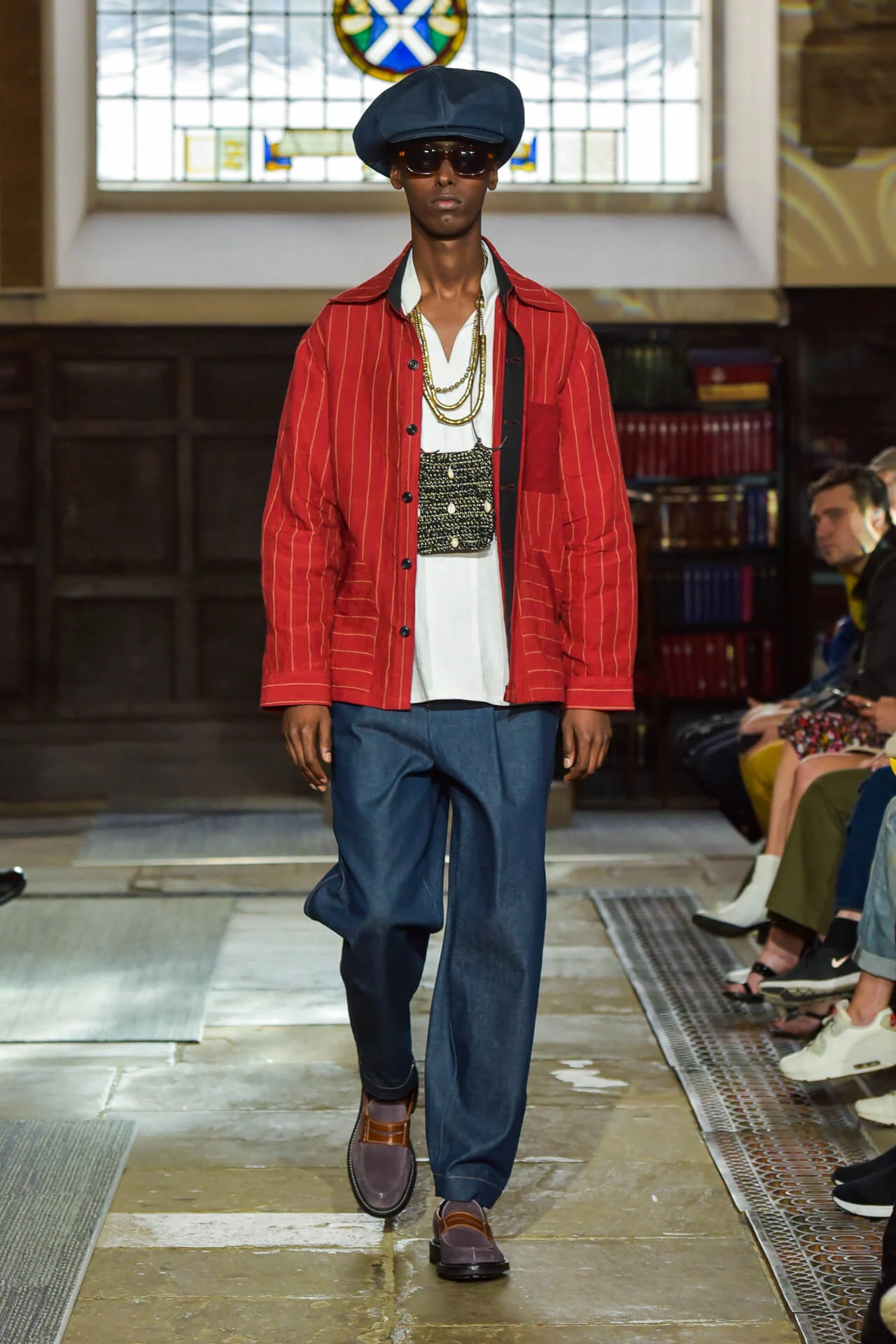
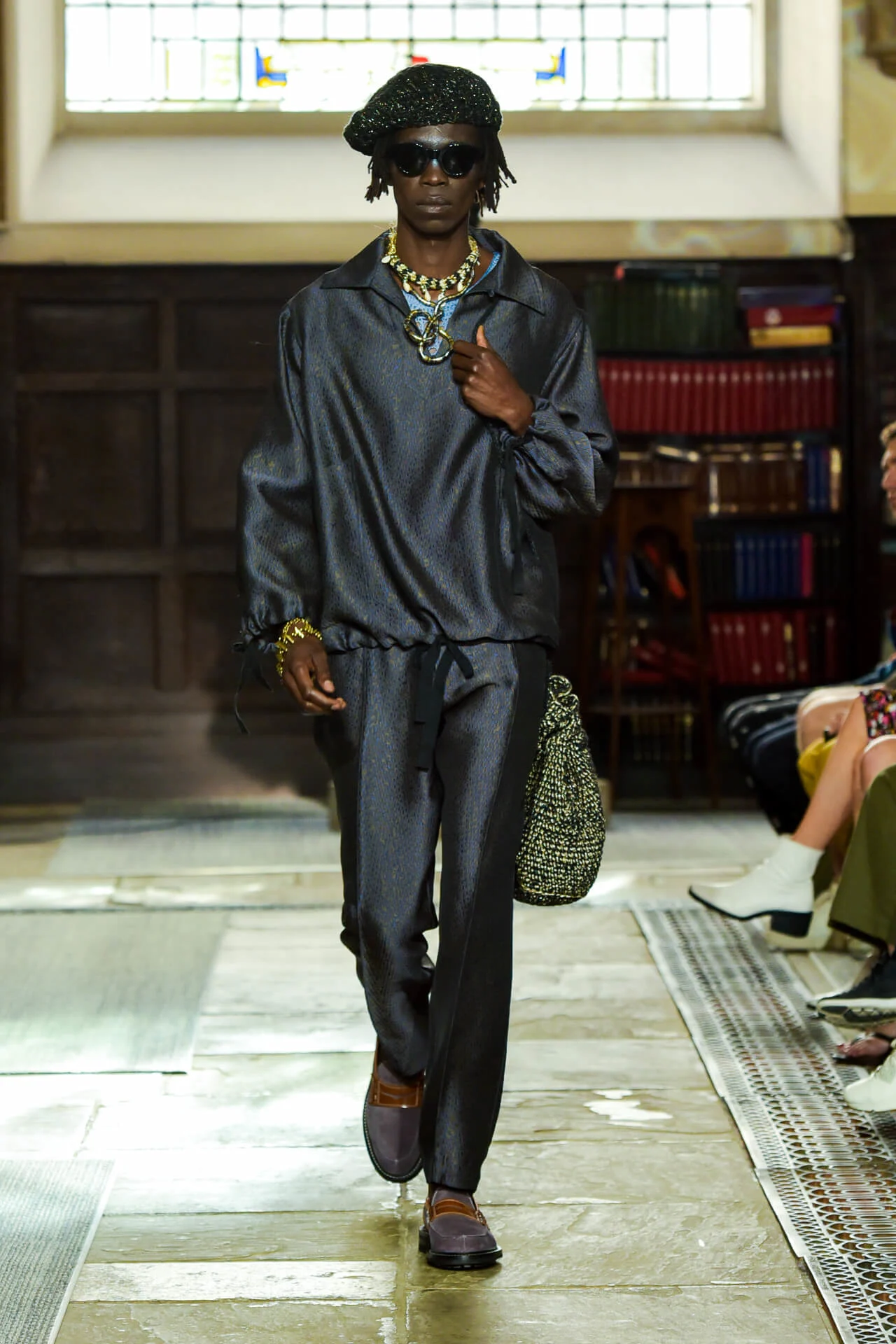
“My family history is an integral part of my collections as I constantly reference and look back for inspiration every season,” Daley says. “For example, for my SS19 collection I paid homage to the reggae clubs my parents ran in the 70s. I reproduced the original club t-shirt and looked through my parents archive imagery which then informed the colours, styling and overall feeling of the collection.”
Whether he’s championing Scotland or using colours linked to Jamaica, his work transcends the London-centric fashion bubble to create something entirely unique. As for the future, Nicholas is dedicated to ensuring that his work is a celebration of family history and heritage. “I want to create clear and transparent collections that reflect my ideas. For me, referencing my own heritage creates authenticity.”